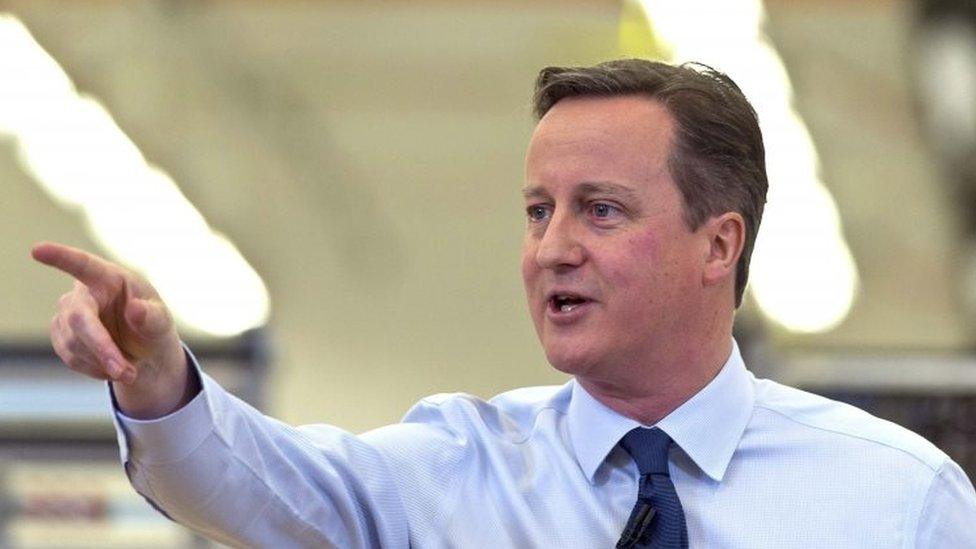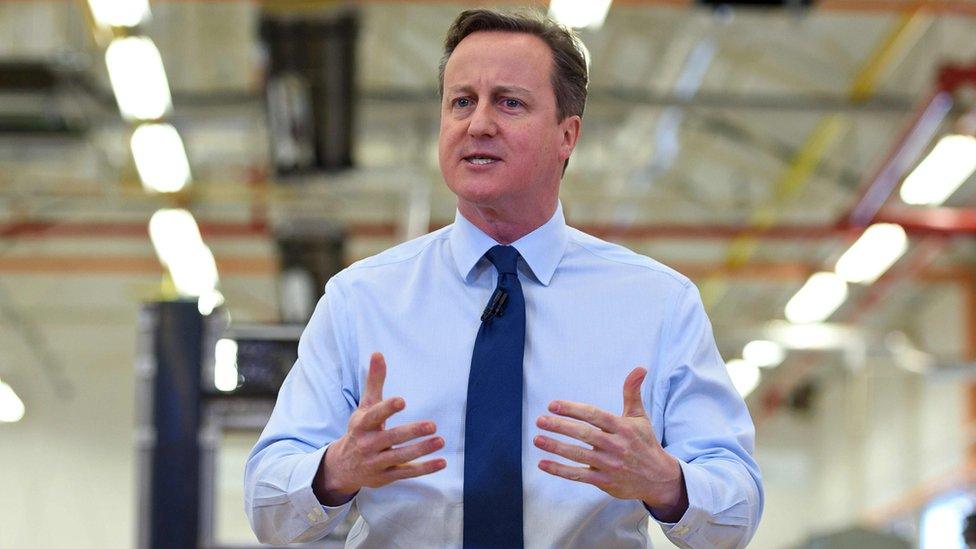EU referendum: Cameron's campaign starts here
- Published

It comprises 17 pages of closely argued legal jargon, diplomatic ambiguity and square brackets.
The contents are dismissed by critics as a "pint-sized package" that fails to match the prime minister's lofty ambition of fundamental reform.
It is a draft text that oozes with the obfuscation of old-style EU fudge.
There are paragraphs of compromise that fail to meet the promises of the Conservative manifesto.
The newspapers look down sniffily and ask: "Is that it?"
Tory MPs mutter to one another in the corridors of Westminster, unable to hide their disappointment. One is so affronted he stands up in the House of Commons and accuses his government of "polishing a poo". Such is the elevation of political discourse that the European Union engenders.
And yet David Cameron is on his feet at a factory in Wiltshire claiming the draft reform deal published by Donald Tusk, external would leave Britain "better off, more secure, more prosperous". The settlement, the prime minister said, gave Britain the "best of worlds" and that was "something worth fighting for".
Bouncing around
So yes, Mr Cameron may have to spend the next two weeks twisting arms in Europe, there may be no guarantee of a deal and everyone is agreed that nothing is agreed until everything agreed.
But the prime minister is already in campaign mode, bouncing around tiggerishly in his shirtsleeves, selling his deal almost as if it had been agreed.
There will be an emergency brake on in-work benefits imposed on EU migrants, they will be able to send less child benefit home, there will be greater protection for businesses from the Eurozone, parliaments will get more powers to block EU laws, the UK will escape further political integration within the EU, there are legally binding promises to make the EU more competitive.
And there will be changes to make it easier for the UK to exclude terror suspects even if there is no imminent threat.
So here's the point. However much this package is diluted or changed in coming weeks, Mr Cameron now believes he will have enough of a deal to sell to the British people. And that means that he can begin to make his case for Britain to remain within the EU from today.
And that will have consequences. Tory ministers who want to support the campaign to leave the EU are champing at the bit, silenced by collective responsibility while the prime minister gets his campaign rolling.
Man in a hurry
They will be released from their omerta once the cabinet has agreed the government's official position after the summit later this month.
But that means the PM has a clear couple of weeks where he can own the political space - as long as his ministers behave.
It also illustrates Mr Cameron's impatience for a quick referendum in June while his opponents are divided and before refugee numbers have reached their summer peak.
So Mr Cameron insists that what he wants is the right deal not a quick deal.
But today he gave every impression of being a man in a hurry, keen to start campaigning even while he's still negotiating.
In other words, the referendum campaign has begun.
- Published2 February 2016
